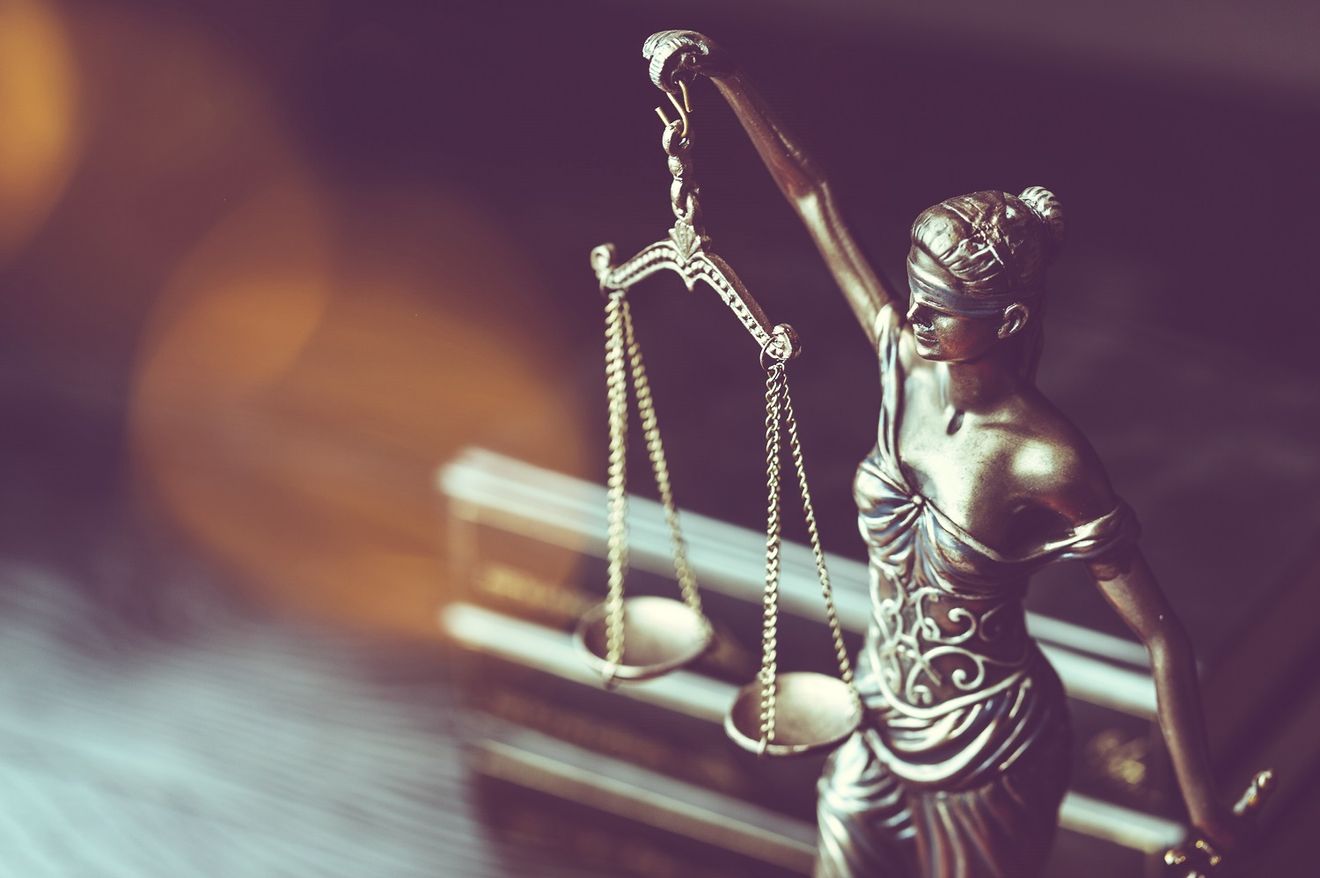What, if any, options exist to pursue legal psychedelic experiences? Can you experience these profound realms without fear of persecution or arrest?
Legal Psychedelic Experiences – A Therapist’s Dilemma
My name is Peter H. Addy. I’m a psychotherapist in Oregon and Washington. Formerly, I worked as an associate research scientist at Yale School of Medicine. There I studied atypical psychedelic substances for several years. I have a lot of research and clinical experience with psychedelic and transpersonal states.
In my private practice people sometimes approach me. They say, “Dr. Addy, I’m really interested in taking a psychedelic substance and having a transformative experience. I’ve read the studies and I’m really interested in this path to healing. Can you give me a psychedelic substance, or help me find some?” I have to reply with, “No, I can’t help you with that. What you’re asking is illegal and as a therapist my number one concern is your safety and reducing risks, both for you and for me.”
That response is disappointing for people who come to me for help. They want healing. They’re suffering. Reducing their suffering is their goal, and I have to say, “Nope, I can’t help and I can’t refer you to someone who can.” However, after researching psychedelic substances and experiences for over a decade, I’ve noticed a few ways that people might be able to have legal psychedelic experiences.
Risks and Risk Management
Therapists think about risks and risk management every day. For example, when you begin therapy there is a risk that your confidential information might be intercepted or lost or stolen. We manage that risk by closing the door to our offices. Also, I use a white noise machine so that people can’t eavesdrop on our private conversations. Additionally, we use full disk encryption on our computers to prevent your protected health information from falling into the wrong hands. We think about risks and how to reduce or manage those risks all day, every day.
Using a psychedelic substance has risks. By far the number one risk or concern is that most psychedelic substances are federally illegal. Buying, manufacturing, possessing, or using a Schedule I controlled substance has the potential to lead to arrest. In turn, this could lead to legal fees, jail or prison, disrupting your career or relationships, and others. Prison is not helpful to anyone’s mental health. As such, I do not recommend or advise anyone to do anything illegal. I am in the business of reducing risks. Doing something illegal and possibly going to prison is decidedly risky.
I am not a lawyer. If you are interested in any of these options, don’t trust me. Contact an actual lawyer. Most state Bar Associations have a Lawyer Referral Service you can reach out to for support.
Four Options for Legal Psychedelic Experiences
There are at least four legal ways that someone can have legal psychedelic experiences. I am not recommending anyone do any of these things. Nor am I suggesting that any of these are good ideas. I just want to present some options and the associated risks. Thus making informed decisions easier.
One risk that is true of all these options is that you might not have a community. You might not have people you can talk to for support, who understand what you��’ve been through. When you can’t talk about your experiences to anyone it can be difficult to keep those insights with you afterwards. If this is the case, reaching out to a professional with education, experience, and training in providing psychedelic harm reduction and integration might be a good option. You can also search for a local psychedelic integration group – here is a good list.
Option One for Legal Psychedelic Experiences: Join A Clinical Trial
The first option is to join a research study. There are several active clinical trials investigating psychedelic-assisted psychotherapy. These trials are using MDMA, psilocybin, and LSD (and observational studies tracking use of ibogaine and ayahuasca). This option is great because you know who to talk to, what’s going to happen, and what you’re taking. Research scientists think about the process of informed consent every day. The substances they use have known potency and purity, verified by independent lab testing. They have policies and procedures for every kind of risk you can think of. These studies are FDA and DEA approved. There are no legal risks for you.
It’s easy to find these studies. Simply go to clinicaltrials.gov and search for them. Every medical research study involving human subjects conducted in the United States requires registration. By registering to their study on this website, they’re able to send regular updates on how the study is progressing. Many researchers outside the US register their trials here as well. You can search by keywords like psilocybin and you can filter by state or view a map. The information is easily accessible, and they have contact information. You can see who to call or email to learn more.
Research Coordinator Pro Tip
Pro tip: Contact the research coordinator, not the principal investigator. There’s usually more than one contact person listed on the clinical trial web page. One person is the principal investigator. They probably have an MD after their name or maybe a PhD. Don’t contact them. They are way too busy to respond to you in a timely manner. The next person on the list might have a BA or BS after their name. That’s the research coordinator. That’s the person you want to talk with. Their job literally is to talk with you about participating in the study and to get you in quickly.
These trials have a lot of integration work built into them. Here is a video where I summarize how clinical trials incorporate integration. While you’re in that three or four month rigorous treatment and data collection period, there’s a ton of integration work. It is very comprehensive. Afterwards, if you need additional support, you can reach out to integration specialists and/or find a local community.
Potential Risks
Potential risks of participating in a clinical trial are clearly described during the informed consent process. The risks are usually associated with the treatment being investigational with limited safety data available for the indication the trial is enrolling for. The principal investigator and institutional review board thought out all the harms and risks that you might possibly encounter and created plans to reduce and manage them.
However, there may be some difficulties or some barriers to entry. While it’s easy to find these studies, it’s not easy to participate. You might not meet the inclusion criteria. These research trials are very rigorous about who they take. You might not be eligible. These trials could be far from where you live. This would be a barrier to inclusive participation because you would have to fly to South Carolina, for example, stay at a hotel, miss work, eat out, etc. The costs add up, and not everyone can pay them.
One possible significant risk to clinical trials is the researchers themselves. Researchers are flawed human beings, just like the rest of us. At least two psychedelic researchers have committed sexual ethical violations.
Be Aware of Ethical Violations
If you participate in any kind of research study and feel that you’ve been mistreated or sexually violated, please contact the institutional review board or other oversight body to report your concerns. You should always feel completely safe and informed of study procedures whenever you participate in research.
Only you know if participating in a clinical research trial is right for you. If you make it into the screening process, you can bring the informed consent document to your doctor or therapist to discuss the treatment and think about what the commitment to participate would mean. Many trials randomly assign participants to either an active dose group or a placebo group. If you land in the placebo group this can often be a disappointment.
Next, you might consider traveling the globe in search of legal psychedelic experiences.
Option Two: Legal Psychedelic Experiences Tourism
Ayahuasca tourism is big business. So are mushroom and ibogaine tourism due to rapid expansion. With ayahuasca tourism you go to South or Central America where ayahuasca is legally protected. Ritual ayahuasca use is part of the cultural heritage in many places. On the other hand, locations like Jamaica and the Netherlands, there is no direct cultural or historical lineage. But the laws are different and mushroom use is not entirely illegal.
Psychedelic tourism is not easily accessible. An all-inclusive nine-day ayahuasca retreat on average costs about $1,500 plus airfare, plus time off work, plus immunizations. This is not accessible to a lot of people.
Much of the discussion around indigenous ayahuasca use involves talk of ayahuasca “shamanism.” Please note that the word shamanism may be considered problematic. The term “shamanism” comes from Mongolia and Siberia and refers to indigenous people and practices of that region. A long time ago some white people came to the Amazon and said, “you guys are shamans now.” But they’re not shamans. More accurate terms to use include curandero, ayahuascuero, or onanya. Also, note that having an experience with ayahuasca is not the same as having a “traditional ayahuasca treatment.” Whatever that means.
Who Are You Helping?
Curanderos have their own traditions. Unfortunately, these traditions have historically been appropriated and persecuted by white colonialists. For hundreds of years, foreigners, predominantly white men from North America and Europe, have traveled to the Amazon and the rest of the global south. They took things that were useful to them, and left without concern for the native people. This has caused a lot of bad things to happen. The indigenous people are in struggle and have been for generations.
If you want to be an ayahuasca tourist, you may be perpetuating this exploitative historical relationship. Going to some retreat centers is very helpful and supportive of the local community. Some ayahuasca retreat centers help indigenous communities. For example, retreat centers sometimes use their proceeds to fund local schools, infrastructure, livestock, healthcare, etc. However, other times very little of the proceeds go back to the local community. This just repeats the cycle of victimization and exploitation of indigenous resources by foreigners. Finding ethically responsible places is definitely worth your time when seeking legal psychedelic experiences.
Potential Risks
Unlike a research study, if you go drink ayahuasca with a curandero you don’t necessarily know what is in the beverage. There’s no known potency or purity like in research. Those are Western concepts that don’t really translate to indigenous contexts. Also, the plants used in brewing the beverage can vary. Ayahuasca always contains a leaf with DMT and a vine with harmine. Each of these substances is psychoactive on its own. Harmine has been used in psychotherapy on its own to
facilitate healing.
Occasionally, curanderos add other plants such as non-psychoactive teacher plants, tobacco or coca leaves, or datura. Sometimes the plant spirits and the indigenous healing traditions call for these admixtures to be included in a preparation. Once in a while, the facilitator wants to make a good impression on the cash-paying foreigners so they can get good reviews and steady income. Informed consent means knowing what ingredients were used in the brew you are going to ingest. If your intent is to use two substances, but the impact of drinking a brew is that you are using four or five substances, that can lead to confusing and unpleasant experiences. Non-consensual drug use is never a good idea.
Take Psychedelic Support’s free harm reduction course to learn what to expect and how to maximize safety. You’ll hear tips for best practices and integration, and ways to get support after a challenging experience.
Sexual Assault Threat
Sexual assault is prevalent in ayahuasca tourism. All genders are perpetrators and all genders are victims or survivors. However, the pattern tends to be an indigenous man who is the facilitator picks out and assaults a white or a non-indigenous woman. To be clear, sexual assault is always the fault of the perpetrator.
There is also the possibility of cross-cultural miscommunication that can confuse things. Foreigners sometimes look at the indigenous people as elevated or advanced in some way. As a result, there can be an implicit trust which has not been earned. Indigenous people sometimes look at white women, particularly American women, as more desirable and promiscuous than indigenous women. This reputation has not been earned. These and other expectations can be taken advantage of.
If you are assaulted as a tourist, when you come back to your home base you might be blamed for it. In the end, this is never deserved and never helps.
The Chacruna Institute recently came out with some Community Guidelines for both reducing and supporting people who have experienced sexual assault in ayahuasca retreats. Women’s Visionary Congress has also published safety tips for participating in ceremonies. These are great resources for people traveling to the Amazon.
There are known guidelines for using ayahuasca. Many medications must be discontinued. A special diet is common. This kind of preparation and attention to detail is useful for reducing both psychological and physical risks of using ayahuasca.
Next, you might consider joining a church.
Follow your Curiosity
Sign up to receive our free psychedelic courses, 45 page eBook, and special offers delivered to your inbox.Option Three: Join A Church
In the United States of America, there are three legally recognized churches that use psychedelic substances as religious sacraments. In 1978, the American Indian Religious Freedom Act was codified, which exempted the Native American Church from the Controlled Substances Act. The NAC uses peyote as a religious sacrament, and its church is a bona fide religious institution. Later, it was clarified that you do not have to be Native American to be a member of and participate in the Native American Church.
In 2006, the US Supreme Court found that the UDV, which is a church from Brazil that uses ayahuasca as a religious sacrament, is a bona fide church. Ayahuasca is not an illegal drug when used as part of a religious ritual within the context of a UDV ceremony. In 2009, the US District Court of Oregon found that a different ayahuasca church, Santo Daime, is a church with a legit legal religious sacrament of ayahuasca.
These three churches have legal protections for their members. Members of these churches should not be arrested or prosecuted for their use of psychedelic substances within the confines of church ceremonies. However, members can still face discrimination from the local community. That’s happened in Oregon and New Mexico. The people in these churches aren’t exactly advertising. They’re not going door to door trying to make converts. They want to keep it kind of quiet so that no one bothers them.
Potential Risks
If you want to join one of these churches, ask yourself why. You may be going into this community, which has historically been disadvantaged and prosecuted against, taking something useful for yourself, and then leaving. That’s not what church is about. The word church is related to a group of people, not a building or a legal status. It is people gathered together for a common purpose, the purpose of glorifying God or collective healing. If you join a psychedelic church, you’re joining a group of people who are there to heal each other. Getting your healing and leaving is antithetical to the point of a church, psychedelic or otherwise.
These churches are partly based on or influenced by Catholicism. They can be hierarchical and gendered and can have unfriendly attitudes towards LGBTQIA folks. For example, in Santo Daime services men and women dress differently and sit on opposite sides of the room. If you’re non-binary or intersex or trans, what do you wear and where do you sit? That could be very uncomfortable. If you’re gay and you go to a church service where people talk about the “gay lifestyle” as a sin that needs healing, that’s going to be uncomfortable and possibly traumatic for you. Are you going to one of these churches in order to seek healing from gender or sexual-based trauma? You could, in fact, become retraumatized.
Know the Community and Commitment
This isn’t a blanket statement; each church operates a little bit differently based on local customs and whatnot. Some communities can be very accepting and inclusive. You don’t know unless you ask and get to know the community.
This isn’t like going on a retreat for a week. These churches are where the church members live and work and spend their resources. Be mindful if you want to walk in and join them.
Only you can decide if joining a psychedelic church is right for you. Talk to some members of the church to get a better idea about its practices. Ongoing connection with a like-minded spiritual community is a definite potential benefit of this approach compared to the others.
Next, you might consider atypical psychedelics.
Option Four: Atypical Psychedelics
Another option that may be available to you is to expand your definition or rethink what the word “psychedelic” means. I employ the term “atypical psychedelic”, which I borrowed from mainstream psychiatry. Psychiatric medications can be categorized. For example, as typical antipsychotics (which affect dopamine) and atypical antipsychotics (which affect glutamate or other receptor systems). Also, there are typical antidepressants (which affect serotonin) and atypical antidepressants (which affect norepinephrine or other receptor systems). Similarly, typical psychedelics are defined as 5-HT2A agonists. This category includes LSD, psilocybin, DMT, and mescaline. Atypical psychedelics affect other receptor systems.
Salvia Divinorum
Salvia is a plant endemic to southern Mexico that can produce mystical experiences. Salvia divinorum is legally available in some states but not others. Always check your local regulations. The Mazatec people use this plant for physical and spiritual healing as well as for ritual. It may be useful for treating addiction. They chew fresh leaves or make a water infusion from fresh leaves to drink. Outside traditional use, people usually smoke dried leaves or concentrated extracts from the leaves. Smoking produces a rapid, intense, disorienting experience.
Potential Risks
If you purchase Salvia leaves, you cannot be sure of potency. Actual potency is only moderately correlated with labeled potency. Buying Salvia online or from a local headshop probably does not benefit the historically marginalized indigenous communities in southern Mexico who have cultivated a relationship with Salvia for hundreds of years.
If you’re using it on your own, you might not have the kind of attention to set and setting that comes with a guided experience. You may have little to no community to help you integrate your experience. In some cases, the disorientation and hallucinations of a smoked Salvia extract lead to people walking around without being aware of their environment, which can lead to physical harm.
Ketamine
Ketamine is a controlled substance that can produce mystical-type effects. It can be prescribed by a medical doctor and used to treat depression and chronic pain disorders. Ketamine-assisted psychedelic psychotherapy is available in the United States and elsewhere. You can read our substance guide here, or other articles on ketamine psychedelic therapy and how to prepare for the experience. You can find ketamine providers by searching the Psychedelic Support Network with the key word ‘ketamine’.
Follow your Curiosity
Sign up to receive our free psychedelic courses, 45 page eBook, and special offers delivered to your inbox.Potential Risks
Ketamine psychotherapy has the potential to be only minimally risky. Ketamine can be manufactured, ensuring potency and purity. Medical doctors who administer it must be trained and are able to monitor users for any adverse effects in real time. Taking ketamine only in these structured settings reduces the risk of addiction or dependence. You should be given informed consent before starting a course of treatment, complete with a discussion of risks and benefits.
Cannabis
Cannabis is legal in many states, and cannabis-assisted psychotherapy is a novel approach that providers and clinics are offering. Cannabis can be used with psychedelic or entheogenic intent and has been used for spiritual and ritual purposes for thousands of years.
Potential Risks
State and federal law are at odds. Cannabis can be addictive, with chronic users developing tolerance and experiencing withdrawal upon discontinuation.
Cannabis use has historical contexts of power and privilege. If you are purchasing cannabis from a dispensary, you are probably not helping marginalized communities who have been oppressed by the racist war on drugs for decades. Does your money help disadvantaged, historically oppressed peoples from your local community? Alternatively, does it help venture capitalists from other states or countries?
Find the Others with Legal Psychedelic Experiences
There are several ways you may be able to facilitate legal psychedelic experiences with a substance. I am not advising anyone to do any of these things. In general, therapists don’t like to give advice. It’s not really in our professional scope. I don’t advise people. I’m not going to recommend that you seek this experience versus that experience.
While I may not be able to say whether any of these options is right for you, I love talking about risk management and harm reduction. I do that every day. If you are in Oregon or Washington and you want to talk to me personally about managing risks and reducing potential harm related to seeking legal psychedelic experiences, I’m happy to chat with you. If you live in another state, there are other therapists available in the Psychedelic Support Network and other directories. You can find someone to talk to so that you can explore options and decide what you want to do, why you want to do it, and what the risks are for you and those around you.









